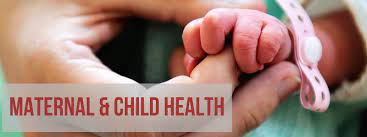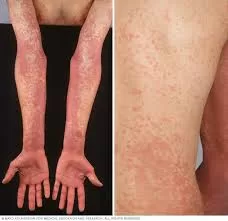
The government of India implements various schemes/initiatives to make healthcare more accessible to all throughout the country including women, rural and SC/ST population. These schemes/initiatives include:
Comprehensive Primary Health Care (CPHC) through Ayushman Bharat- Health and Wellness Centres (HWCs):In February 2018, the Government of India announced 1,50,000 Ayushman Bharat- Health and Wellness Centres (AB-HWCs) to be established across the country by December 2022. The existing Sub- Health Centres (SHC), Primary Health Centres (PHC) and Urban Primary Health Centres (UPHC) are transformed into AB-HWCs to deliver Comprehensive Primary Health Care (CPHC) that includes preventive, promotive, curative, palliative and rehabilitative services which are universal, free, and closer to the community. As on 31.07.2023, a total of 1,60,816 AB-HWCs have been operationalized across the country.
- Health Melas are organized at the level of AB-HWCs to optimize utilization of health care services and generate awareness. Ayushman Health melas are ‘one-stop’ platforms to address a comprehensive range of health issues have proven to be an effective strategy to reach the masses and augment the utilization of healthcare services.
- Teleconsultation services, through eSanjeevani, are available at functional AB-HWC to ensure specialist services closer to the people. As on 31st July 2023, more than 14.35 crore Teleconsultations have been provided via the eSanjeevani portal. Screening of women is also being done at AB-HWCs for breast cancer, oral cancer and cervical cancer.
- National Free Drugs Initiative: States/UTs are supported to provide essential drugs based on the level of public health facilities free of cost to all who access these facilities.
- Free Diagnostics Initiatives. (FDI): Under the initiative, support is provided to States/UTs to provide a set of essential diagnostics (14 tests at Sub Centre/ Health and Wellness Centre level, 63 tests at PHC/ PHC-HWC level, 97 tests at CHC level, 111 tests at SDH level and 134 tests at DH level) at various levels of care, free of cost.
- National Ambulance Services (NAS) – Under the NHM, technical and financial support is provided for emergency medical services in States/UTs through a functional National Ambulance Service (NAS) network linked with a centralised toll-free number 108/102.
- National Mobile Medical Units (NMMUs) – are supported to facilitate access to public health care at the doorstep, particularly to people living in remote, difficult, under-served and unreached areas to provide primary care services.
Apart from above-mentioned schemes, Government has also implemented the following schemes, especially for pregnant women:
- Surakshit Matritva Aashwasan (SUMAN) provides assured, dignified, respectful and quality healthcare at no cost and zero tolerance for denial of services for every woman and newborn visiting public health facilities to end all preventable maternal and newborn deaths.
- Janani Suraksha Yojana (JSY), a demand promotion and conditional cash transfer scheme for promoting institutional delivery.
- Under Janani Shishu Suraksha Karyakram (JSSK), every pregnant woman is entitled to free delivery, including caesarean section, in public health institutions along with the provision of free transport, diagnostics, medicines, blood, other consumables & diet.
- Pradhan Mantri Surakshit Matritva Abhiyan (PMSMA) provides pregnant women a fixed day, free of cost assured and quality antenatal check-up by a Specialist/Medical Officer on the 9th day of every month.
- LaQshya improves the quality of care in labour room and maternity operation theatres to ensure that pregnant women receive respectful and quality care during delivery and immediate post-partum.
- Functionalization of First Referral Units (FRUs) by ensuring manpower, blood storage units, referral linkages to improve access to quality of care for pregnant women
- Outreach camps are provisioned for improving the reach of healthcare services especially in tribal and hard-to-reach areas. This platform is used to increase awareness for Maternal & Child health services, and community mobilization as well as to track high-risk pregnancies.
- IEC/BCC campaigns: One of the key focus areas of Maternal Health is to generate demand through Information Education & Communication (IEC), Inter-personal Communication (IPC) and Behaviour Change Communication (BCC) activities.
The Union Minister of State for Health and Family Welfare, Prof. S.P. Baghel stated this in a written reply in the Rajya Sabha yesterday.











